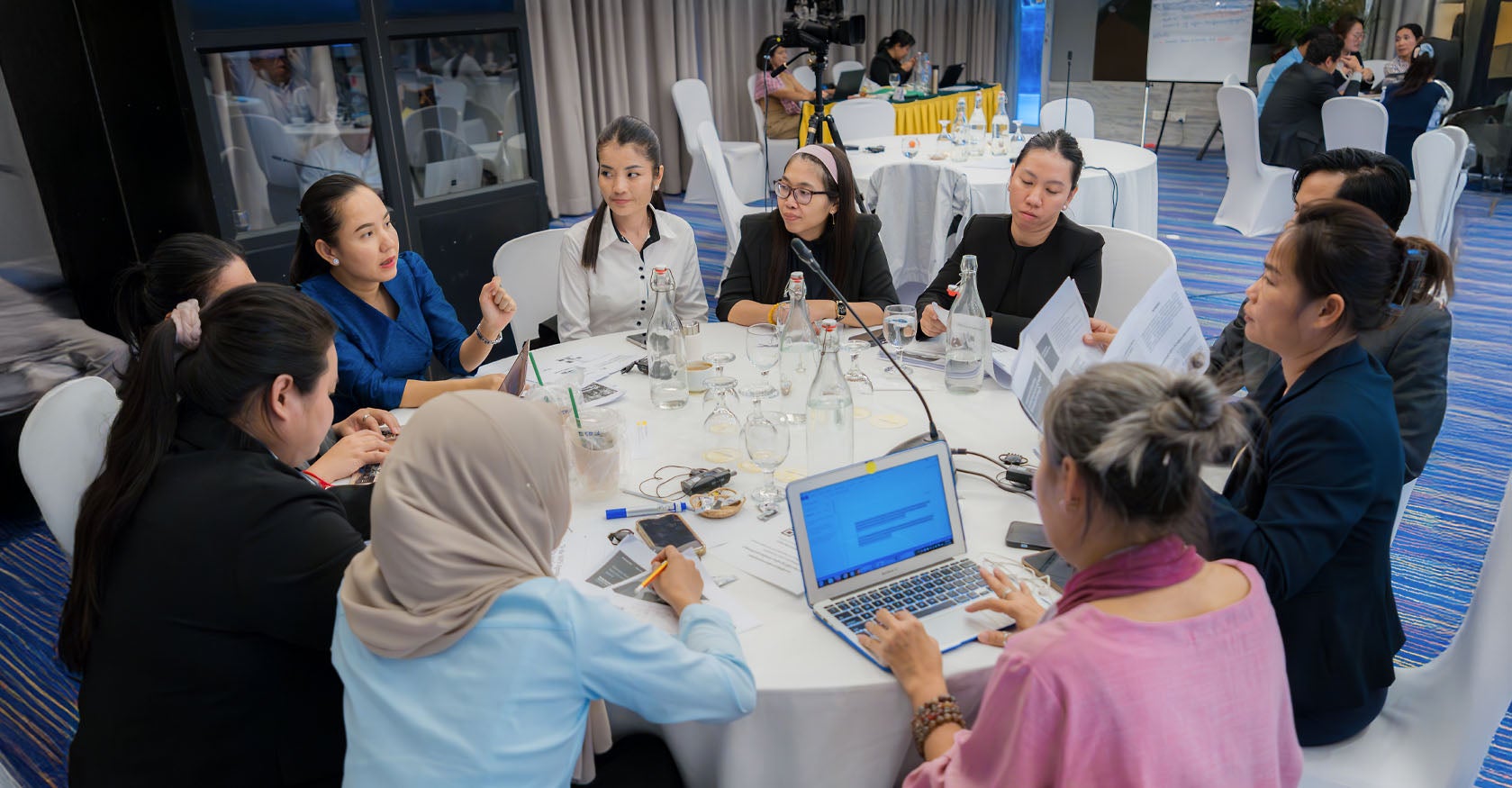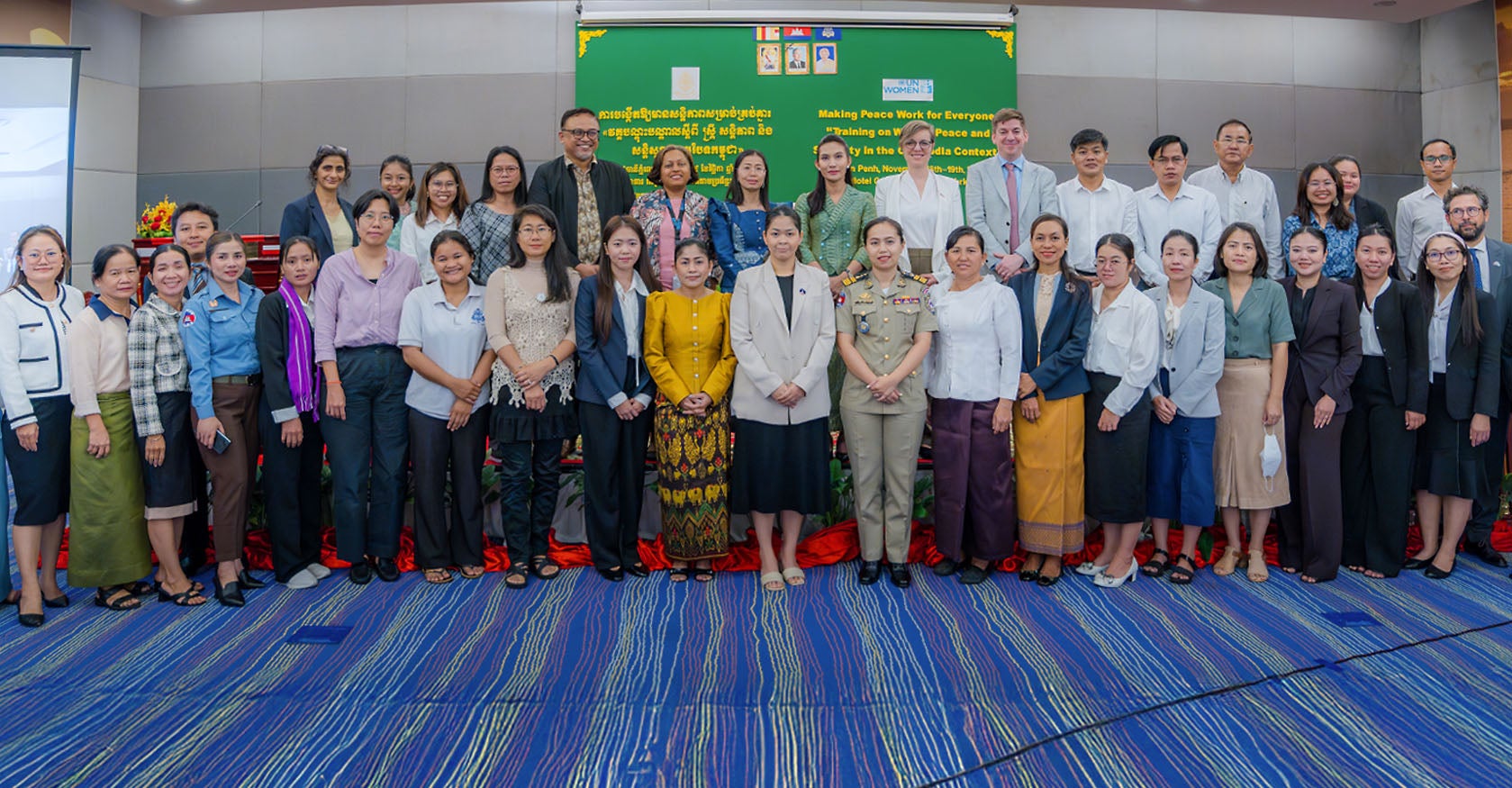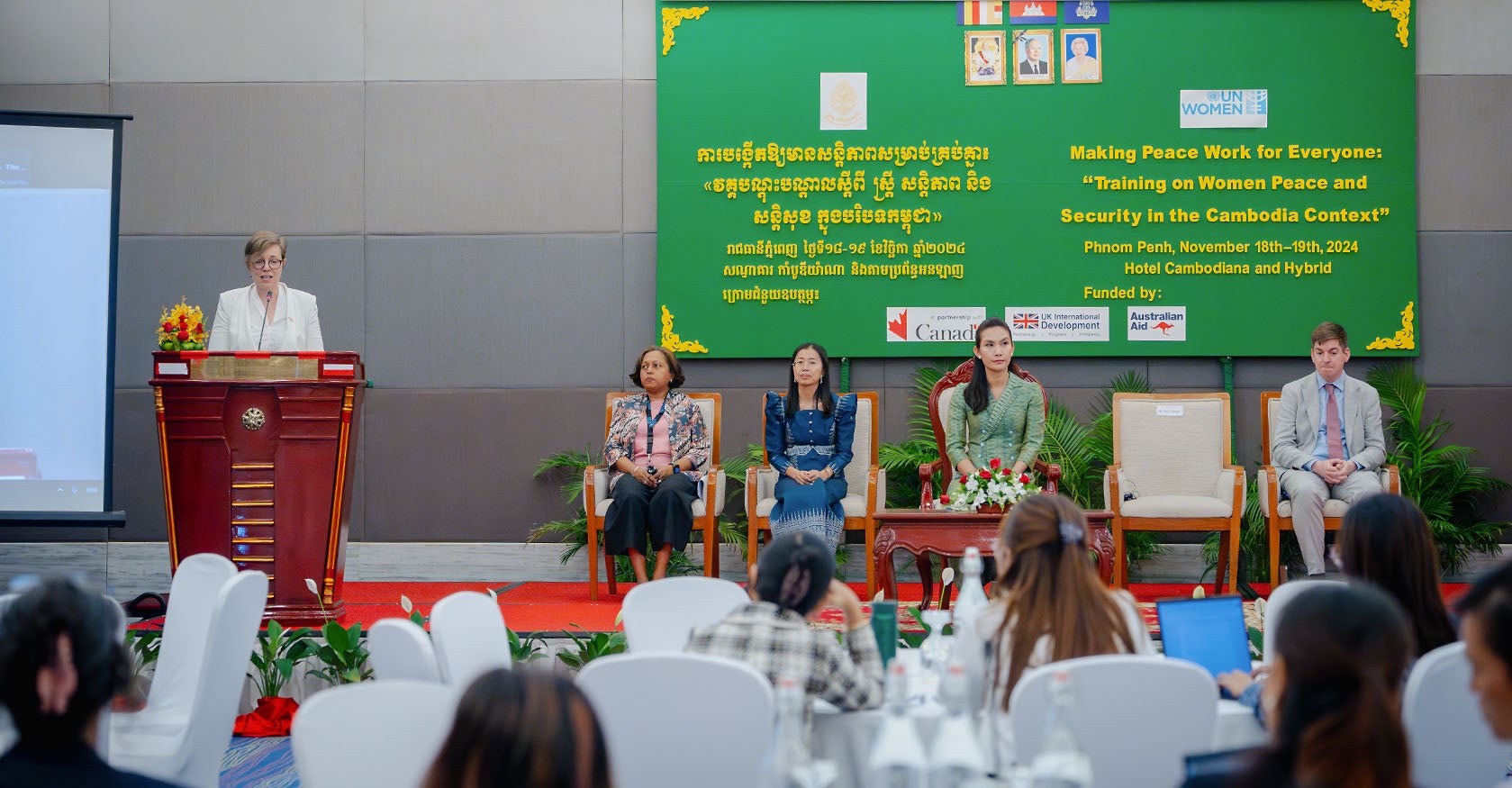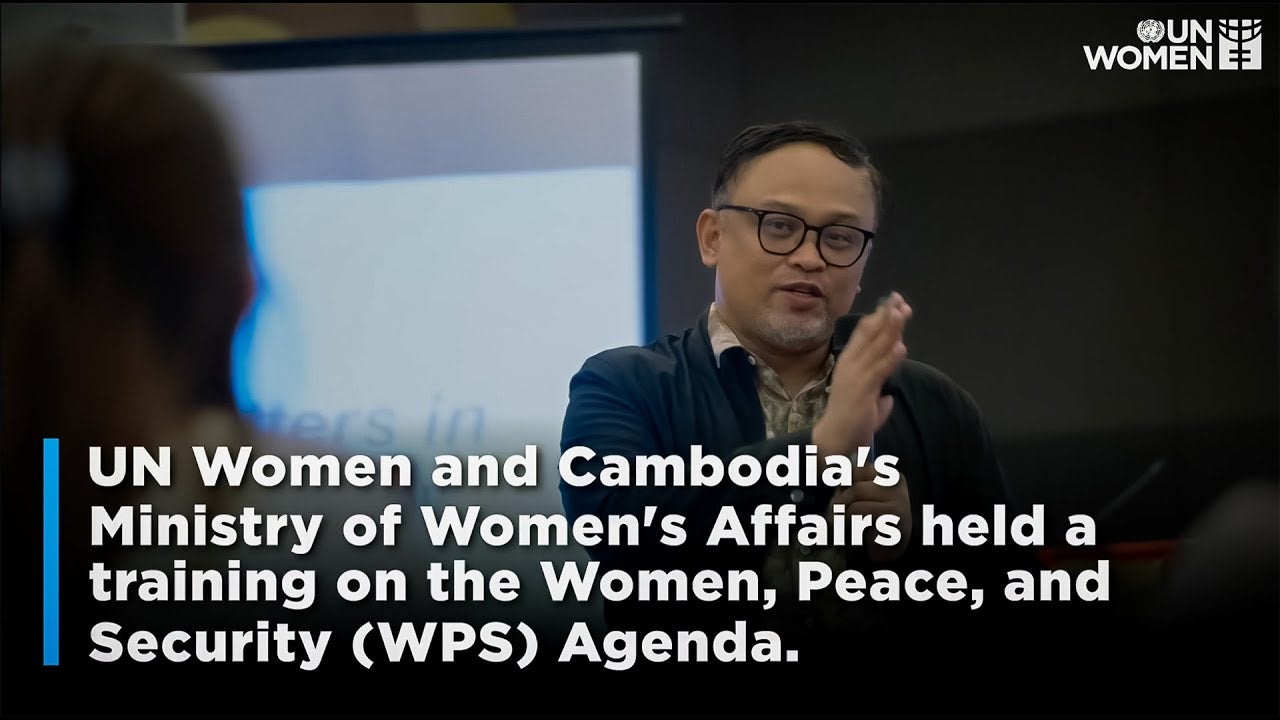A Global Framework with Local Relevance
Even in times of peace, the WPS Agenda remains critical for fostering a fair and inclusive society. Cambodia has emerged as a regional leader in advancing the WPS framework. Local stakeholders view the Agenda as a tool for building a more equitable and secure future for all.
Dr Keo Ratanak, Deputy Chief of Office, Department of Policy, Ministry of Education, Youth and Sports, emphasises, “Cambodia is a peaceful country with a strong foundation, and by addressing challenges such as gender-based violence, migration, and raising awareness about women's rights and roles, we can create an even more inclusive, equitable, and harmonious society.”
Srey Sotheavy, Executive Director of the Alliance for Conflict Transformation (ACT), a prominent peacebuilding organisation, underscores the importance of systemic change, reflecting "When we talk about peace and violence, we must confront the structural issues that perpetuate harm within our society. Tackling these issues at their root is essential, and the WPS Agenda must be widely understood and put into action."
Exploring New Themes in Peacebuilding
The workshop offered an in-depth exploration of global and regional WPS frameworks, addressing emerging themes like climate security and digital peacekeeping. H.E. Run Sovanntevy, Undersecretary of State, Ministry of Women’s Affairs, remarked, "The sessions on AI and disinformation were particularly enlightening. Learning from other ASEAN member states will be invaluable for developing Cambodia's National Action Plan (NAP) on WPS."
Police Colonel Pech Sophealeak, Deputy Director of the Anti-Human Trafficking and Juvenile Protection Department, emphasised the importance of addressing women's cybersecurity concerns, stating, "These are not just national issues but global challenges that require collaborative solutions."

Women in Peacekeeping Roles
The WPS Agenda promotes women's meaningful participation in all aspects of peacebuilding, including peacekeeping. Women peacekeepers often have unique access to communities and serve as role models, inspiring local women to engage in peace processes. In Cambodia, this commitment is evident through its strong cohort of female peacekeepers. H.E. Koung Sorita, Secretary of State for the Ministry of Women’s Affairs, praised Cambodia’s leadership in deploying female peacekeepers, noting: "We rank highly in ASEAN but need stronger collaboration to advance this work."
Domestically, women are crucial to security. Colonel Pech Sophealeak remarked: “Women in the Cambodian National Police are instrumental in ensuring safety and order for all citizens. Their active involvement is a testament to how women already contribute significantly to peace and security within the country."
Towards a National Action Plan
The workshop has been a key activity in Cambodia’s progress toward developing its first National Action Plan (NAP) on Women, Peace, and Security (WPS). NAPs are vital tools for transforming global commitments into actionable national policies, ensuring governments allocate resources and create accountability frameworks to address the gendered impacts of conflict and crises.
H.E. Koung Sorita, Secretary of State for the Ministry of Women’s Affairs, and the chair of ASEAN Advisory Group on Women, Peace, and Security, outlined Cambodia’s approach to developing its NAP, stating, "We have prioritised the WPS agenda within the policy of Neary Ratanak VI in the new mandate of ministry, focusing on strengthening the empowerment of women and girls into governmental policies and programs in all sectors and all levels. However, this is not a task we can achieve alone, it requires collaboration with other stakeholders, especially inter-ministerial institutions, Civil Society Organizations and Development Partners."

A Collaborative Path Forward
Civil society organisations (CSOs) play a pivotal role in advancing the WPS Agenda, given their deep connections with local communities and their understanding of on-the-ground challenges. As Norul Mohamed Rashid noted, "CSOs are crucial in advancing the WPS Agenda, addressing issues that matter most to women and girls through grassroots engagement."
Srey Sotheavy further emphasised the importance of collaboration, saying, "No single entity can achieve the WPS Agenda's goals alone. Sustained cooperation between governments, CSOs, and international partners is essential."
Cambodia’s commitment to the WPS Agenda reflects its vision for an inclusive, sustainable peace. By prioritising women’s participation and addressing systemic barriers, the country is laying the groundwork for a more secure and equitable future.
As Dr Keo Ratanak reflected, "Peace is a big concept, but when we respect and apply these principles, we can achieve a more peaceful and equitable society."

